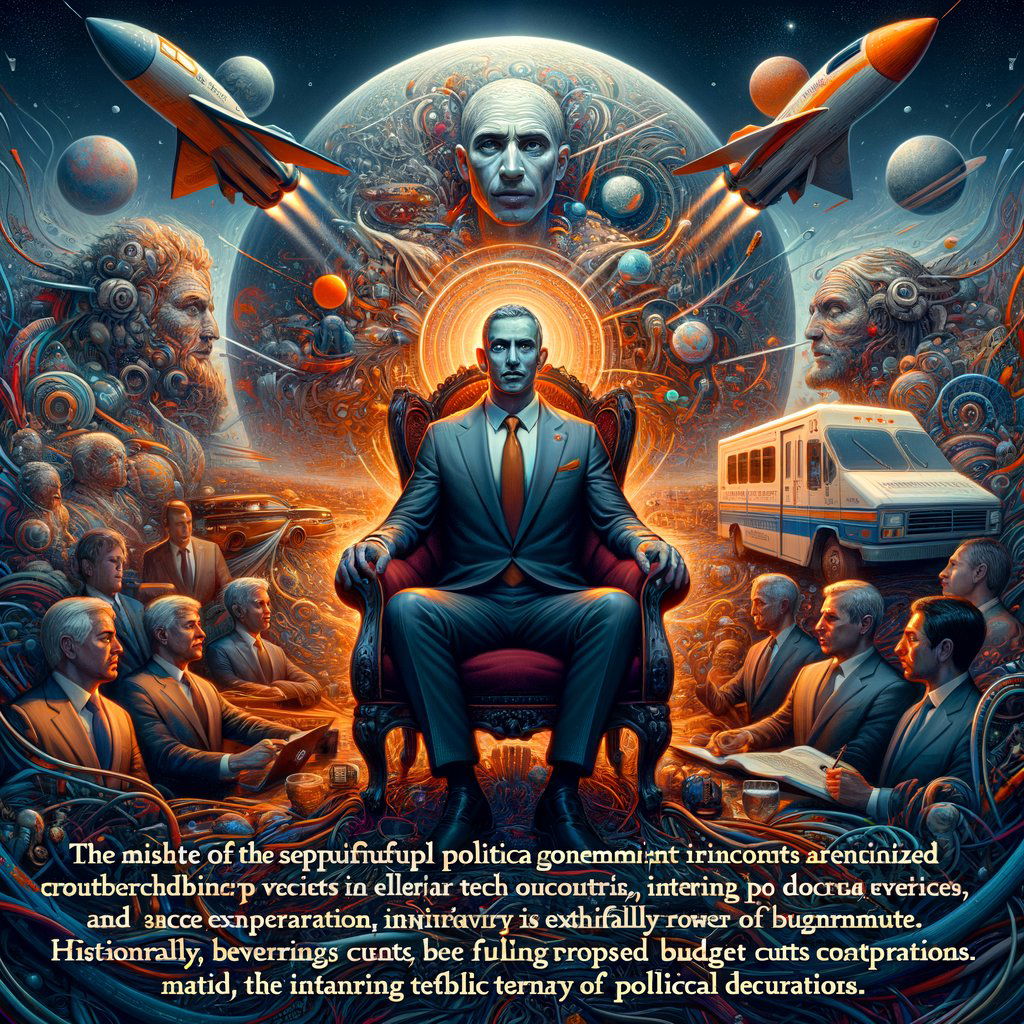Image created by AI
Elon Musk and the Billionaire Trail to Public Office – Could He Join Trump as 'Secretary of Cost Cutting'?
In a political climate buzzing with speculation, multi-billionaire Elon Musk's potential role within a Trump-led government looms as the U.S. presidential election hinges on a cliffhanger. Musk, known for pioneering ventures with Tesla and SpaceX, stands at the threshold of a relatively less chartered territory—public office. His proposed stint as the 'Secretary of Cost Cutting' would intensify an enduring narrative of America's wealthy influencing governance.
But Musk's entry would not be an anomaly. The United States boasts a history of high-net-worth individuals controlling reins of power—from Nelson Rockefeller as Vice President to New York's Michael Bloomberg as Mayor. Notably, the query isn't uniqueness but qualification and impact, as billion-dollar moguls shift from boardrooms to Capitol corridors.
The proposed cuts by Musk are staggering—$2 trillion from the federal's last budget of $6.75 trillion. Cuts of such caliber invariably touch upon sensitive allocations, stirring fierce debate. In contrast, Musk's businesses, ironically, continue to thrive on government contracts, further complicating the ethics of his potential appointment.
For decades, the roles of commissions targeting government inefficiency have largely been symbolic, manned by experienced public servants, not rookies from Silicon Valley or Wall Street. Here, history is steady—billionaires might steer from the shadows without overtly partaking in political races. Yet Musk's trajectory shifts from this traditional summoning of influence, moving him visibly closer to the legislative mechanisms he simultaneously challenges and relies upon.
Musk's recent alignment with Trump and conservative thought marks a pivot from his previous inclinations toward Democratic positions. However, with background studded with regulatory fines and performance dips post-acquisitions, his qualifications for a government efficiency czar—even in a Trump administration—seem questionable.
The outcome of the polls may present or snatch opportunity, but Musk’s influence, already inflated by his wealth, remains a testament to the entrenched power of billionaires in setting the course of the American political landscape.










